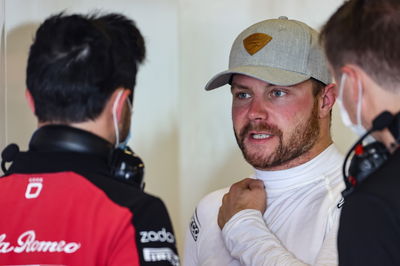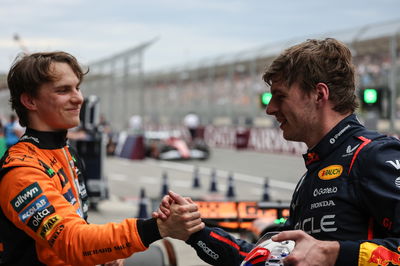Ongoing B-team ‘threat’ is damaging the fabric of F1 - Brown

Amid F1’s push for tighter cost controls and the introduction of a budget cap, co-operation between some F1 teams on the grid has stepped up in recent years.
Red Bull and sister outfit AlphaTauri work closer than ever before and strong ties also exist between Ferrari, Alfa Romeo and Haas, as well as Mercedes and Aston Martin.
Despite enjoying a close relationship with Mercedes due to their power unit supply deals with Mercedes, both McLaren and Williams pride themselves as operating as independent teams.
Speaking in a recent column on McLaren’s official website, Brown warned “the threat of A and B teams has not gone away” and added it is “vital that the governance of the sport is strengthened to prevent this”.
“The regulations, as they stand today, are heavily biased towards B teams/customer teams which is not in line with F1’s principle of a group of genuine constructors competing with one another on even terms,” he wrote. "It is diminishing what being an F1 ‘team’ means and the fabric of the sport.
“F1 needs to be 10 true constructors, where each team – apart from sharing the PU and potentially the gearbox internals – must design and produce all parts which are performance relevant.
“Right now, there is too much diversity in the business models between teams. Trying to apply the same set of complex regulations to each, and then policing them effectively, is needlessly complicated and compromised as a result.”

Brown is also concerned some larger teams are taking advantage of the situation to vote through changes that benefit themselves, rather than the world championship as a whole.
“This cost-capped environment should allow teams to become more recognisable entities in their own right within a realistic budget, without the concern of significant performance differences based on how much each team can spend,” he continued.
“In a nutshell, the current situation allows B teams to be overcompetitive compared to constructors, and A teams to be overcompetitive by having the benefit of a B team.
“Without a correction, the way things stand mean that any team with championship aspirations needs to have a B team in place and that simply is not Formula 1.
“On top of this, the voting pressure placed by the A teams on their B teams is not consistent with the promotion of an equitable sport based on individual team merit.
“As I have said before – and these teams won’t admit to it – there are times when some smaller teams vote against their own interests to satisfy the agenda of their A team.”












